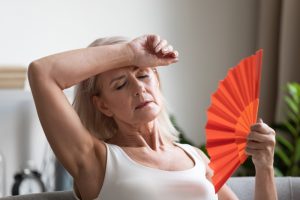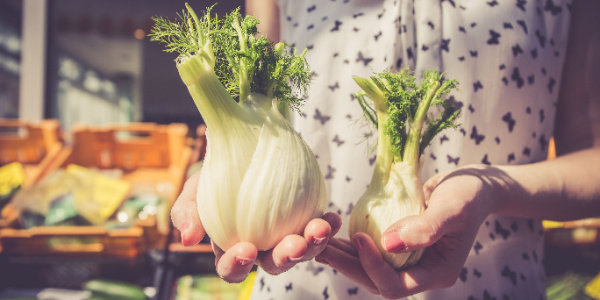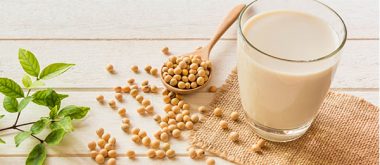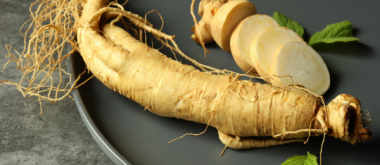An anise-flavored herb popularly used in cooking, fennel has long been known for its health benefits for a variety of issues, including digestive problems and premenstrual symptoms. Research shows that fennel is also effective in treating postmenopausal conditions like hot flashes, insomnia, vaginal dryness, and anxiety without serious side effects. The study results were published in Menopause, the journal of the North American Menopause Society (NAMS).
Botanicals for Menopausal Symptoms
The documented use of botanical folk medicine stretches back into recorded human history. There is DNA evidence going back 48,000 years that indicates the consumption of plants for medicinal purposes by Homo neanderthalensis. Archaeological evidence going back 800,000 years even suggests that plants are not used as food by Homo erectus or similar species. Today, the evidence for the effectiveness of botanical folk medicine ranges from anecdotal to clinical studies. In fact, the use of complementary and alternative medicine to treat menopausal symptoms has also increased in recent years as women seek natural alternatives to hormone therapy (HRT). Although HRT is an effective treatment for combating menopause symptoms, some women have turned to herbal medicine because they are unsuitable for hormone therapy or fear unwanted side effects. Fennel, an herb that contains essential oils, has phytoestrogenic properties. Phytoestrogens are estrogen-like chemicals found in plants that are used to effectively treat a variety of menopausal symptoms.
The Effect of Fennel on Menopausal Symptoms
In this small study of 79 Iranian women aged 45 to 60, capsules containing 100 mg of fennel were administered twice a day for eight weeks. Improvements were compared between the intervention and placebo groups at four, eight, and ten weeks, with a significant statistical difference being documented. In the end, fennel was found to be a safe and effective treatment for reducing menopause symptoms with no serious side effects. The study described in the article Effect of Foeniculum vulgare Mill. (Fennel) on Menopausal Symptoms in Postmenopausal Women: A Randomized, Triple-Blind, Placebo-Controlled Study is one of the first clinical trials to evaluate the benefits of fennel for the treatment of menopausal symptoms. The study was conducted in Tehran, Iran, where the median age of menopausal women is 48.2 years, slightly below the usual median age in other countries. This small pilot study found that, based on a menopause rating scale, twice-daily consumption of fennel as a phytoestrogen improved menopause symptoms compared to a minimal effect of placebo.
Based on the results of in vivo and in vitro animal studies, fennel may also have antidepressant and anxiolytic properties. In addition, some research has examined the effects of fennel on sexual function and sexual satisfaction. It was found that women who were treated with fennel experienced a significant improvement in sexual satisfaction compared to the control group and had less pain during intercourse.
Only one study evaluated the effectiveness of fennel in combination with officinalis (balm balm) in treating insomnia. 60 menopausal women with insomnia were randomized to one of three groups (Melissa, citalopram, and placebo) for a follow-up period of 2 months. The Melissa group received 300 mg of fennel combined with 300 mg officinalis daily (once a day). The citalopram group received 20 mg of citalopram, then the dose was increased to 30 mg after one week. Patients were asked to complete the Pittsburgh Sleep Quality Index (PSQI) questionnaire before and after treatment. PSQI had seven components: subjective sleep quality, sleep latency, sleep duration, habitual sleep efficiency, sleep disturbance, use of sleeping medication, and daytime dysfunction. Compared to baseline, all seven components of the PSQI showed a statistically significant improvement in all three groups. There was a statistically significant difference between the Melissa group compared to citalopram and placebo.
Fennel Lowers Blood Pressure
Fennel has other effects as well. Just like lavender and chamomile, it has long been used as a folk medicine to lower blood pressure. With advanced age, especially after menopause, many women are affected by high blood pressure. In fact, the risk of hypertension doubles during this time.
A study published in Proceedings of the National Academy of Sciences (PNAS) illustrates how many of the well-known traditional botanicals used to lower blood pressure activate a specific potassium channel (KCNQ5) in blood vessels. KCNQ5 is expressed in vascular smooth muscle along with other potassium channels, including KCNQ1 and KCNQ4. When activated, KCNQ5 relaxes blood vessels, making it a logical mechanism for at least part of the antihypertensive effects of certain botanical folk medicines. Research from the University of California has determined that KCNQ5 activation is a unifying molecular mechanism shared by a variety of botanical antihypertensive folk medicines. Lavandula angustifolia, commonly referred to as lavender, was among those studied along with fennel seed extract and chamomile.
Interestingly, the KCNQ5-selective activation of the potassium channel found in plants is absent from the modern synthetic pharmacopoeia. So far, it appears to have eluded conventional screening methods using chemical libraries, which may explain why it is not a recognized feature of synthetic blood pressure drugs. The discovery of these botanical KCNQ5-selective potassium channel openers could enable the development of future targeted therapies for diseases such as hypertension and KCNQ5 loss-of-function encephalopathy.





